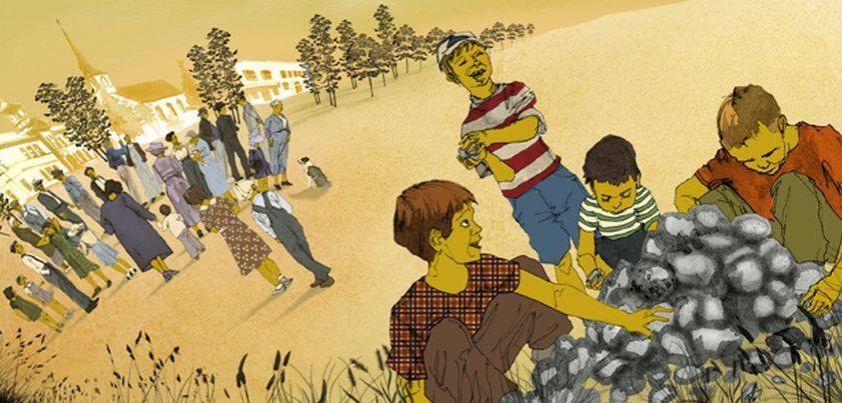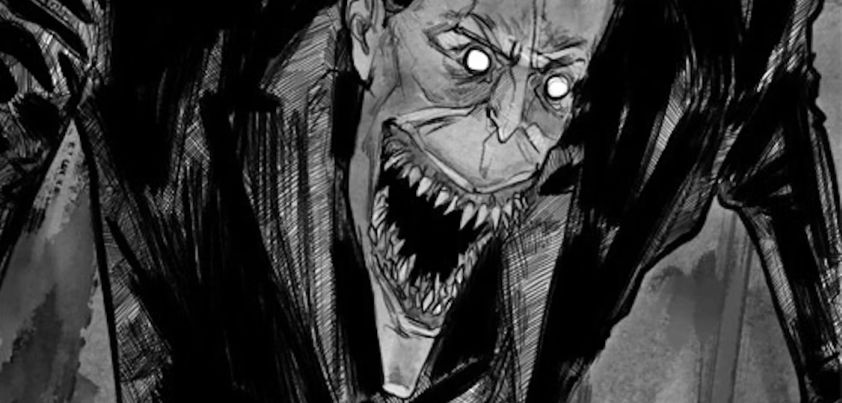 Raymond’s Run by Toni Cade Bambara is about a feisty school girl nick-named ‘Squeaky’ who helps take care of Raymond, her mentally challenged older brother. Squeaky is a very talented runner. She trains hard and desperately wants to win this years’ May Day race to show up an annoying and over-confidant new girl in town. During the race she sees Raymond running along the outside of the track keeping pace with her. She suddenly decides that winning races doesn’t matter as much as it used to. Themes: responsibility (care-giving), identity, independence, alienation, pride, rivalry, personal growth, respect. More…
Raymond’s Run by Toni Cade Bambara is about a feisty school girl nick-named ‘Squeaky’ who helps take care of Raymond, her mentally challenged older brother. Squeaky is a very talented runner. She trains hard and desperately wants to win this years’ May Day race to show up an annoying and over-confidant new girl in town. During the race she sees Raymond running along the outside of the track keeping pace with her. She suddenly decides that winning races doesn’t matter as much as it used to. Themes: responsibility (care-giving), identity, independence, alienation, pride, rivalry, personal growth, respect. More…
The Lottery
 Author Shirley Jackson had no idea of the angry reaction The Lottery would receive when it first appeared in 1948. The story tells how each year the otherwise ‘normal’ people in a small American farming town perform a gruesome ritual to ensure a favorable growing season. The major theme is how herd or mob mentality can drive people to do things they would never consider individually. Other themes include dystopia, gender roles, violence and cruelty (human sacrifice), acceptance (the blind following of tradition), and man’s inhumanity to man (the potential for evil in all of us). More…
Author Shirley Jackson had no idea of the angry reaction The Lottery would receive when it first appeared in 1948. The story tells how each year the otherwise ‘normal’ people in a small American farming town perform a gruesome ritual to ensure a favorable growing season. The major theme is how herd or mob mentality can drive people to do things they would never consider individually. Other themes include dystopia, gender roles, violence and cruelty (human sacrifice), acceptance (the blind following of tradition), and man’s inhumanity to man (the potential for evil in all of us). More…
The Man in the Black Suit
 This story from Stephen King builds on a common legend in folklore in which an unsuspecting protagonist is tempted by the devil. King made two changes to the standard plot that result in a truly frightening the tale. First, the devil’s target is an innocent nine-year-old boy. Second, instead of the devil’s usual objective of offering an earthly reward in exchange for the boy’s soul, this devil is hungry and plans to give the poor lad a heavenly reward by eating him. Themes: isolation, innocence, the supernatural, deception, fear, religious belief, life-long trauma, aging and death. More…
This story from Stephen King builds on a common legend in folklore in which an unsuspecting protagonist is tempted by the devil. King made two changes to the standard plot that result in a truly frightening the tale. First, the devil’s target is an innocent nine-year-old boy. Second, instead of the devil’s usual objective of offering an earthly reward in exchange for the boy’s soul, this devil is hungry and plans to give the poor lad a heavenly reward by eating him. Themes: isolation, innocence, the supernatural, deception, fear, religious belief, life-long trauma, aging and death. More…
Animal Farm
 Given events taking place in modern-day Russia, it is timely to revisit this classic political satire from George Orwell. Included in Time Magazine’s list of the 100 best English language novels, the story is an allegory of the 1917 Russian Revolution and rise of Stalinism. Major themes (and the reasons for its relevance today) are the lust for and corrupting effect of power, and how an unenlightened populace can be manipulated into continued acceptance of a failed/corrupt political system. Other themes: idealism, political transition (autocracy→ socialism→ communism→ autocracy), class, animal cruelty (= exploitation of the working class). More…
Given events taking place in modern-day Russia, it is timely to revisit this classic political satire from George Orwell. Included in Time Magazine’s list of the 100 best English language novels, the story is an allegory of the 1917 Russian Revolution and rise of Stalinism. Major themes (and the reasons for its relevance today) are the lust for and corrupting effect of power, and how an unenlightened populace can be manipulated into continued acceptance of a failed/corrupt political system. Other themes: idealism, political transition (autocracy→ socialism→ communism→ autocracy), class, animal cruelty (= exploitation of the working class). More…
The Last Night of the World
 This Ray Bradbury story opens with a question: What would you do if you knew this was the last night of the world? A couple believe the world will end sometime during the coming night. The idea came in a dream shared by everyone they know. The couple decide the best thing to do is accept the fact and go through their evening routine as usual. They even manage to share a joke and go to bed laughing. What would you do? Themes include family, powerlessness, acceptance of the “inevitable”, comfort in routine, self-absorption and global awareness. More…
This Ray Bradbury story opens with a question: What would you do if you knew this was the last night of the world? A couple believe the world will end sometime during the coming night. The idea came in a dream shared by everyone they know. The couple decide the best thing to do is accept the fact and go through their evening routine as usual. They even manage to share a joke and go to bed laughing. What would you do? Themes include family, powerlessness, acceptance of the “inevitable”, comfort in routine, self-absorption and global awareness. More…